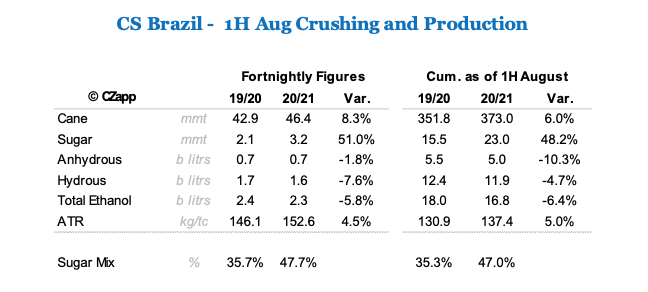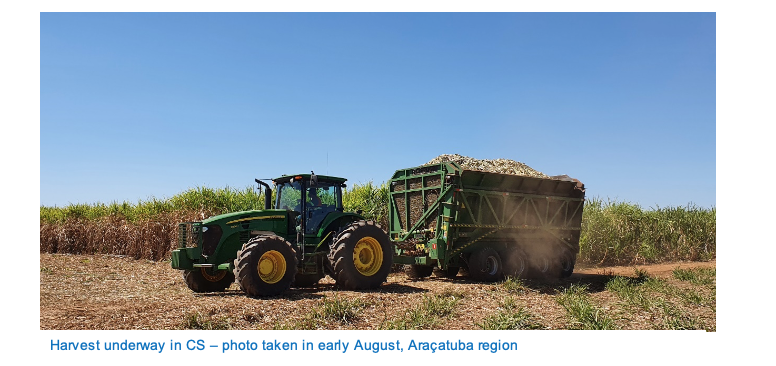- Cumulative sugar production has reached 23mmt.
- Excellent pace of operations, with efficiency at 97%.
- Small reduction of hydrous sales in the fortnight.
Summary Table 1H August

Only 4 days of Stoppages

- Another fortnight of clear weather enabled mills to crush without interruptions.
- Until 1H of August efficiency has been 97%, which means that in the 137 days of operations mills have stopped only 4.3 days due to rains.
CS Efficiency per season – Until 1H of August, efficiency has been 97%

- The excellent pace of operations results in 373mmt of cane crushed until mid-august – this is 6% higher yoy and a record for the period.
- The lack of rains has also enabled a higher concentration of sugar in cane, that reached 152.64kg/ton during the fortnight.
- As for production, no surprises as mills remains maximizing sugar production and cumulative sugar output stands at 23mmt.
CS Daily Cumulative Sugar Production – Until 1H August CS sugar output has reached 23mmt

Ethanol Demand
- Hydrous sales by the mills totalled 758mi litres in 1H of August.
- It is a 12% reduction from the previous fortnight, suggesting that the distributors were well stocked and less active in the market.
CS Monthly Hydrous Sales – slow and steady ethanol recovery of the domestic market









